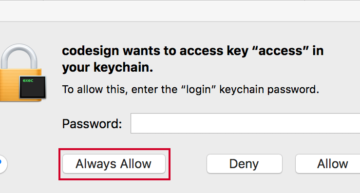
9 Tips To Consider When Buying Website Traffic.
Quick Summary of Contents
- 1 1. Know if buying traffic is feasible for your line of business or industry/niche.
- 2 2. Not thoroughly understanding the difference between untargeted and targeted traffic.
- 3 3. Know the types of ad formats used by the company offering website traffic services.
- 4 4. Know whether or not there are traffic buying minimum or maximum restrictions and guarantees.
- 5 5. Sales and conversions are not guaranteed.
- 6 6. Know in full transparency how traffic will be directed to your website.
- 7 7. Are traffic buying metrics and analytics provided by the company to verify traffic?
- 8 8. Knowing the exact cost, agreement, refund, etc., of what you are paying for when buying traffic.
- 9 9. Always research companies offering website traffic buying services for negative press
Just wait one minute before you hit the buy now button for buying traffic, or at least read this post in its entirety before completing your order.
Website owners and managers are quite familiar with the term or phrase “buying traffic for their website” in some way.
 For most, buying traffic for websites is a way to get quick, targeted traffic at bulk or high volumes.
For most, buying traffic for websites is a way to get quick, targeted traffic at bulk or high volumes.
Buying traffic is becoming very common nowadays.
Now there are several ways to buy traffic, such as PPC advertising networks (i.e., Facebook, Bing, and Google) offering internet traffic targeted by category, age, and country.
In addition, website owners are able to buy traffic from specialized SEO and non-SEO practices such as banner ads on a 3-party website or buying media blasts.
There are a multitude of methods, both search-safe and non-search-safe, to buy and receive instant website traffic.
However, before you choose to invest money in buying traffic from any source peddling such services as a method to increase website traffic, it is highly important to consider the pros and cons of buying traffic.
Let’s have a look at 9 tips I suggest web buyers consider when buying traffic for their website.
1. Know if buying traffic is feasible for your line of business or industry/niche.
Businesses are often so desperate to receive any traffic that they overlook one of the most aspects of buying traffic.
The most important aspect of buying traffic on one’s website is knowing whether or not buying traffic is the most feasible and cost-effective option for generating targeted traffic.
There is no need to spend one dime of money buying traffic if you are unable to receive targeted traffic to your website due to the line of business you’re in.
For instance, you don’t want to buy website traffic for a business-to-business (B2B) if your business services consumers (B2C), and vice versa.
This will be a total waste of time, money, and effort on your part.
Know your business and benchmark the feasibility of buying traffic before blindly writing the check.
2. Not thoroughly understanding the difference between untargeted and targeted traffic.
There are many website traffic packages offered by traffic wholesalers that you can choose according to your requirements and demographics.
One of the most common and costly mistakes is buying traffic wholesale without any sort of demographics expressed in the agreement.
Traffic can be either considered targeted or untargeted.
Targeted traffic is the one that is interested in what you are offering on your website, be it useful information in the form of a review, a physical product, or a service.
On the other hand, an untargeted visitor is one who is not interested in your services on the whole, so it is highly unlikely that he or she will become your customer.
You want to make sure you focus on targeted traffic based on demographics as offered with the PPC advertising you agree to.
For instance, you don’t want to buy traffic that is from China when your business is focused on a local market such as Houston, Texas.
This sort of untargeted traffic is useless and costly and does nothing for your business.
3. Know the types of ad formats used by the company offering website traffic services.
One of the costly mistakes I see most newbies make when buying traffic is not understanding the ad format of their traffic agreement.
You’ll want to understand whether you are paying for a dynamically rotating ad space, a fixed ad space, a pop-up ad space, a pop-under ad space, text or image ad space, a domain redirect ad space, or an animated ad space, to name a few.
Most companies ask publishers to post pop-up or pop-under ads on their websites in which the site URL is mentioned.
This is similar to Google AdWords and other similar PPC services but is relatively affordable due to a competitive pay-per-click, pay-per-view, or impression pricing model.
So, before placing an order, it is important to ask the company what kind of ad formats they use and their overall process of driving traffic to your website.
4. Know whether or not there are traffic buying minimum or maximum restrictions and guarantees.
In my own experience, buying traffic, whether or not the traffic was guaranteed, was a deal breaker.
Most companies offering bought traffic will not outright guarantee traffic.
For the ones that offered guaranteed traffic, they were often unable to provide targeted audiences based on a set of demographics.
You will see various traffic buying plans offered by companies starting as low as 1,000 visits and going up to 50,000 visits sent to your site.
You can buy 500 visits per day for as low as $4.00, which is quite reasonable.
Notice that I did not say anything about unique visitors, nor did I make mention that the visits were real humans.
I encourage you to verify and know the minimum and maximum restrictions of the traffic you’re buying, the type of traffic, and how the traffic will be generated.
5. Sales and conversions are not guaranteed.
Although the visitors sent by most companies offering website traffic, it is difficult to say that all those visitors would convert.
Moreover, if you fail to choose a reputable and reliable firm when you buy traffic, you may end up receiving fraudulent clicks and automated or fake visitors that would not result in actual sales.
So again, you will have wasted your hard-earned money.
One important thing to note when buying traffic is that sales and conversions are not guaranteed, plain and simple. Next.
6. Know in full transparency how traffic will be directed to your website.
One of the biggest mysteries around buying traffic is how traffic directed to your website will be generated.
Be mindful that you want to steer clear of traffic-buying services that use expired domains or domain redirects, automated traffic services, bots, or paid humans to imitate online shoppers clicking around on your website.
Your best bet is to use traffic buying services that of a pay-per-click or impressions model versus a tiered pricing model based on an accumulated number of untargeted visits.
If a company offering traffic cannot explain in full transparency and show you its process, then run for the hills and stick with the mainstream PPC advertising network services such as Google, Facebook, and Bing.
7. Are traffic buying metrics and analytics provided by the company to verify traffic?
Most website traffic providers do not offer their own analytic tools to track your traffic buying experience.
Even when you’re offered real-time stats, I suggest you use a 3rd parties web analytics tracking software such as Google Analytics or CrazyEgg to verify the authenticity of traffic sources.
Google Analytics does a great job tracking and reporting unique visitor counts, referral sources, and location demographics of visitors.
Using 3rd party web analytics tracking software will serve you greatly in understanding who you should and should not spend your money with in regard to buying targeted traffic.
8. Knowing the exact cost, agreement, refund, etc., of what you are paying for when buying traffic.
It’s important to know exactly what you agree to before buying traffic.
Some companies may offer extremely cheap website traffic, but their methods do not comply with the terms and conditions of Google Adsense or other pay-per-click advertising networks.
No matter how cheap or expensive buying traffic service offerings are, please be aware of what you are paying for and the refund policy.
Many website traffic wholesalers offer refunds if you are unsatisfied with their services.
Again, I highly encourage you to use web analytics tracking software to verify that authentic traffic in the form of real visitors is being directed at your website.
If you find something suspicious, you may request a refund by providing evidence supporting your case.
Remember, refunds are offered only to specific cases, so it’s important to first get your hands on a solid verification that will make the company return your money.
Know whether the company you’re buying traffic from offers a money-back guarantee based on traffic performance and results.
It is recommended to read the terms of service or conditions that apply to buying website traffic before you place an order.
Remember to mainly focus on copyright and licenses, use of the site, third-party rights, refunds and cancellation policy, customer support, and campaign management.
If you find anything in your agreement that looks suspicious, it’s better you don’t sign the agreement and find another source to buy traffic from.
9. Always research companies offering website traffic buying services for negative press
One final thought about doing your homework on companies when buying traffic: use forms and review sites.
Many people turn to forums and review sites to know the reputation of a company offering website traffic just as they would for any other SEO services.
Run a search on the company using the terms “reviews,” “negative,” “complaints,” “scams,” etc.
Also, keep in mind that sometimes competitors try to smear or sabotage a company’s credibility simply because they represent another brand.
So, use your judgment instead of relying on what other people say about buying and increasing website traffic or a particular company.
In short, performing a diligent and thorough investigation of the company, its traffic service offering, and traffic agreements will help you avoid the headaches and confusion long before the ink is dry and you’ve been scammed.
I hope these tips help shed light on what you should deem imperative when considering or buying traffic for your website.
Personally, I’ve been to the school of hard knocks for buying traffic, and it can be a daunting task that can cost a person more than they are willing to spend and have a budget for.














Hi, thank you for the tips. I have actually tried a really cheap traffic source called Bitbillions Traffic Monster. Please check my review on my site. Thanks!
Nice and detailed guide to buy website traffic. Everyone should know these details before buying website traffic. Good post…
Thanks for your comment Abhivnav.
Any service or product that sounds to good to be true usually is, as much as people do not want to believe this when you are confronted with what seems to be a great offer its sadly the nature of business.